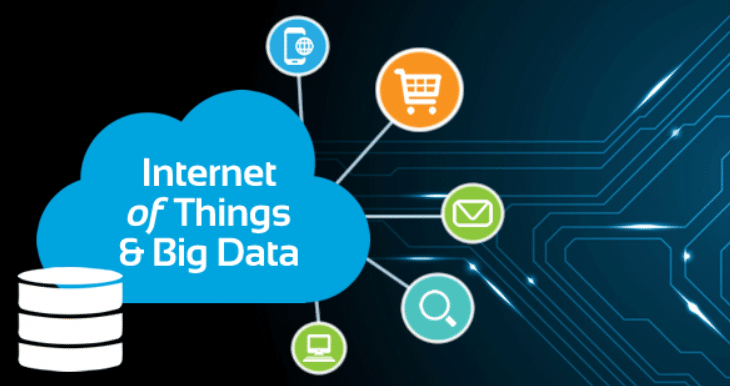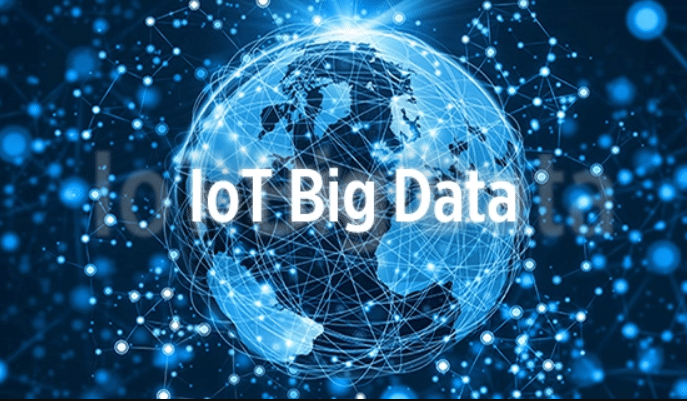The Future Of IoT And Big Data
The future of the Internet of Things (IoT) and Big Data holds immense potential for transforming industries, improving efficiency, and enabling data-driven decision-making. In this time, we will give the article about The Future Of IoT And Big Data. So, check this out!
The Meaning of IoT and Big Data

IoT stands for the Internet of Things. It refers to the network of physical devices, objects, and sensors that are interconnected and capable of collecting, exchanging, and transmitting data over the internet. These devices, known as “smart” or “connected” devices, can communicate with each other and with humans, enabling them to interact and share data in real-time.
IoT encompasses a wide range of devices, including everyday objects such as smartphones, wearables, home appliances, vehicles, industrial equipment, and even entire smart cities. These devices are embedded with sensors, actuators, and software that enable them to collect and transmit data.
The main objective of IoT is to connect and integrate physical objects into a networked ecosystem, enabling them to share data and collaborate intelligently. This allows for enhanced automation, efficiency, and decision-making capabilities in various domains, including healthcare, transportation, agriculture, manufacturing, and more.
By leveraging IoT technology, devices can collect data from their surroundings, analyze it, and communicate with other devices or systems to perform specific actions or trigger events. For example, a smart thermostat can collect temperature data, adjust heating or cooling systems, and learn user preferences for energy efficiency.
The potential benefits of IoT are vast. It can lead to improved operational efficiencies, cost savings, enhanced productivity, better decision-making, and even new business models. For instance, in agriculture, IoT can help monitor soil moisture levels, automate irrigation systems, and optimize crop yield. In healthcare, IoT devices can enable remote patient monitoring and personalized healthcare solutions.
However, with the increasing adoption of IoT, challenges such as data security, privacy concerns, interoperability, and data management have emerged. Addressing these challenges is crucial to fully realize the potential of IoT while ensuring the protection of data and privacy.
In summary, IoT is a network of interconnected physical devices and objects that collect and exchange data over the internet. It enables smart devices to communicate, collaborate, and provide valuable insights for improved efficiency, decision-making, and transformative capabilities across various industries.
The Mean of Big Data
And Big data refers to the vast volume of structured, semi-structured, and unstructured data that is generated from various sources at a high velocity and with a wide variety. It encompasses large datasets that are too complex and voluminous for traditional data processing and management methods to handle effectively.
The Future Of IoT And Big Data

As these technologies continue to evolve, several trends and developments are shaping their future:
Massive Growth in IoT Devices:
The number of connected IoT devices is expected to grow exponentially in the coming years. This growth will lead to an unprecedented amount of data being generated from various sources, including sensors, wearables, and smart devices. The integration of IoT devices with Big Data analytics will enable organizations to extract valuable insights from this vast amount of data.
Edge Computing for Real-Time Processing:
With the proliferation of IoT devices, the need for real-time data processing and analysis is crucial. Edge computing, where data processing happens closer to the source rather than relying solely on centralized cloud servers, will gain prominence. This approach reduces latency, enhances real-time decision-making capabilities, and optimizes bandwidth usage.
Advanced Analytics and AI:
The combination of IoT and Big Data will drive advancements in advanced analytics and artificial intelligence (AI). AI algorithms and machine learning techniques will be applied to IoT data to uncover patterns, predict outcomes, and automate decision-making processes. This will lead to more accurate insights, predictive capabilities, and autonomous systems.
Data Security and Privacy:
As the volume of IoT-generated data increases, ensuring data security and privacy will be of paramount importance. Organizations will need to implement robust security measures, encryption protocols, and privacy frameworks to protect sensitive IoT data. Regulations and standards will play a crucial role in governing the collection, storage, and use of IoT-generated data.
Industry-Specific Applications:
IoT and Big Data will revolutionize various industries, including healthcare, transportation, manufacturing, agriculture, and smart cities. These technologies will enable predictive maintenance, remote patient monitoring, supply chain optimization, precision agriculture, and efficient energy management, among other applications. Industry-specific solutions will leverage IoT and Big Data to drive operational efficiencies and deliver enhanced services.
Data Integration and Interoperability:
As IoT devices and data sources continue to expand, the challenge of data integration and interoperability will become more significant. Organizations will need to develop standardized protocols, data models, and interoperability frameworks to facilitate seamless data exchange and integration across different IoT platforms and systems.
Ethical Considerations:
With the extensive collection of personal and sensitive data through IoT devices, ethical considerations surrounding data usage and privacy will be crucial. Organizations will need to adopt ethical practices, ensure transparency, and provide individuals with control over their data. Ethical guidelines and regulations will play a vital role in governing IoT data usage.
The future of IoT and Big Data is intertwined, offering unprecedented opportunities for innovation, efficiency, and enhanced decision-making. As organizations continue to harness the power of IoT and Big Data technologies, they will unlock new possibilities, drive digital transformation, and create a more connected and intelligent world.
